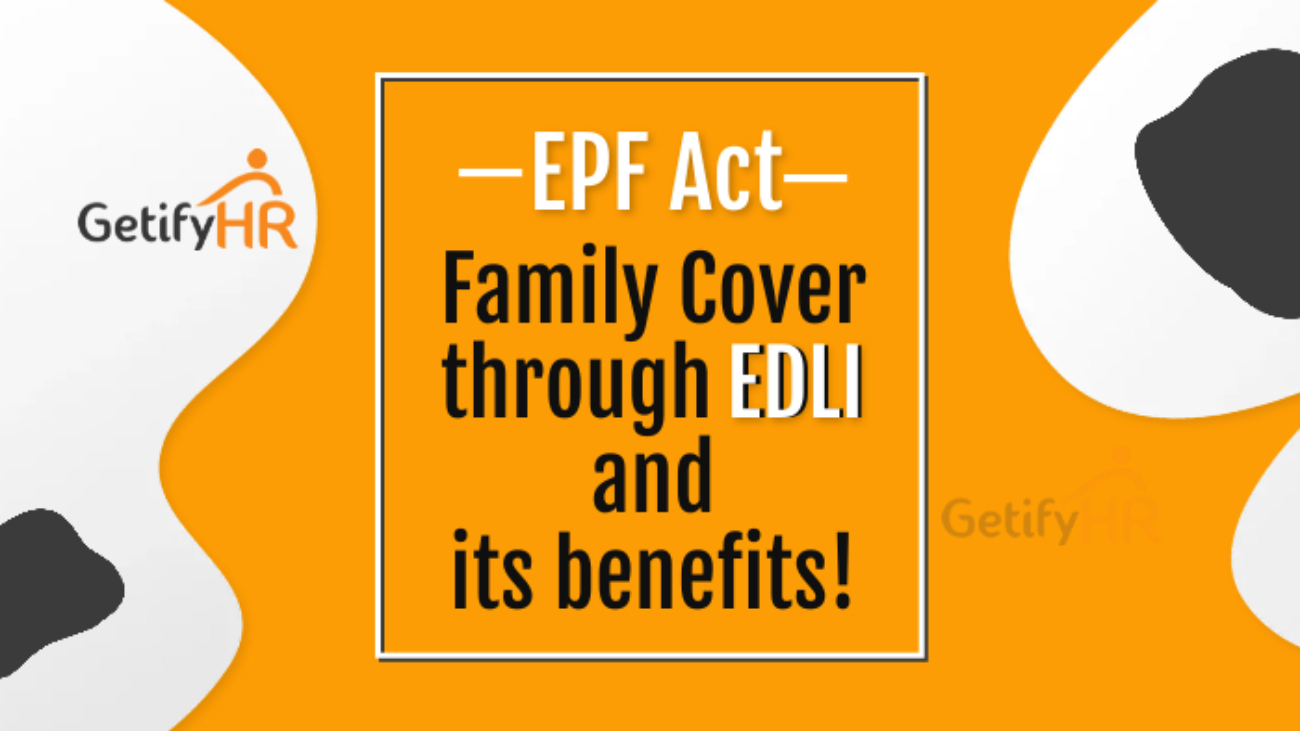Introduction
The Employees Provident Fund Organization (EPFO) is one of the two main Social Security schemes under the Government of India, the other being Employees State Insurance (ESI). The EPFO comes under the aegis of the Ministry of Labour and Employment and is responsible for the regulation and management of Provident Funds in the country. The EPFO manages and administers the Employees Provident Fund (EPF), Employees Pension Scheme (EPS), and Employees Deposit Linked Insurance (EDLI).
EDLI
All the members of the EPFO are covered under the insurance scheme known as EDLI or Employees Deposit Linked Insurance. In this article, we explain the key features of the scheme, eligibility, and benefits of the scheme.
The EDLI scheme was launched in the year 1976 to provide insurance cover to members of the EPFO. Through this scheme, the family of a member gets financial assistance in the case of the death of the member while in service. The insurance cover will depend on the salary drawn in the last 12 months of employment before death.
Under this scheme, there is no exclusion.
EDLI Contribution
The employees and employers contribute to the EPFO scheme and this contribution is split among the three schemes namely, Employees Provident Fund (EPF), Employees Pension Scheme (EPS), and Employees Deposit Linked Insurance (EDLI). There is no contribution from the Employees towards the EDLI scheme, whereas, the employee contribution is 0.5% of the Basic salary + DA, subject to a maximum of Rs:75/-. Eligibility kicks in only when the member has continuously worked for 1 year and is an active member of the EPF.
EDLI Calculation
The average salary drawn by the deceased member during the 12 months before death is taken for calculation of the EDLI benefit. 35 times the average salary in the last 12 months is taken for the calculation, subject to a maximum salary that is capped at Rs:15,000/-. The calculation is as follows:
35,000 x 15,000 = Rs: 5,25,000/-
To this amount, an additional bonus amount of Rs:1,75,000/- is added taking the total amount payable to Rs:7,00,000/-.
Eligibility to claim the EDLI Benefits
The insurance benefits can be claimed by the family members, legal heirs, and nominees of the member.
– Member of the family nominated by the member under the EPF scheme
– In case a nomination has not been made, all the members of the family except major sons, married daughters with major sons, and married granddaughters.
– In case there is no family and no nomination, then legal heirs.
– In the case of a minor, the guardian/family member/legal heirs.
Forms Required
To claim the insurance, the nominee, legal heir, and family member have to apply in EDLI Form 5 IF. The claim form has to be filled separately by each claimant and if the claimant is a minor, the guardian has to fill the form on his/her behalf.
The form has to be filled offline and has to be submitted to the regional EPF Commissioner’s Office along with the Death Certificate issued by the Employer, mentioning the date of death of the member. The Form should also mention the mode of fund transfer.
How to claim EDLI benefits?
- The member should have been an active member of EPF at the time of death.
- Form 5 IF has to be filled and submitted to the EPF Commissioner to get the insurance benefit.
- The form has to be signed and certified by the employer.
- Where there is no employer, the form has to be attested by any of the following officials:
– A gazetted officer
– The District Magistrate
– Member of Parliament or MLA
– President of the Village Panchayat
– Chairman/Secretary/Member of the Municipal or District Local Board
– Postmaster or Sub-Postmaster
– Regional Committee of EPF or Member of CBT
– Manager of the Bank in which the account is maintained.
Documents required for claiming EDLI
-
- Death Certificate of the Member
- Guardianship Certificate if a person other than the natural guardian files the claim on behalf of a minor family member/nominee/legal heir.
- Succession Certificate in case the legal heir makes the claim
- A copy of the canceled cheque of the Bank account to which the payment has to be made.
- Where the member was last employed under an establishment that is exempted under the EPF Scheme, the employer of such establishment should furnish the PF details of the last 12 months under the certificate part and also submit an attested copy of the Member Nomination Form.
The EPF Commissioner is liable to settle the claim within 30 days failing which he is liable to pay interest @ 12% per annum from the stipulated date to the actual date of settlement.
The EDLI Scheme under the EPF Act provides critical support to the family members of a member who has died while in service. The family members, nominees, and legal heirs are eligible to get a maximum of ₹ 7,00,000 in the event of the death of the member in service. This is a great boon to the family at a very critical juncture.
GetifyHR has been able to provide strong support to clients across the country through its Payroll and HR management outsourcing module. This has provided our clients with a strong edge and helped them to improve the overall performance of the company. Through this outsourcing module, the entire gamut of Payroll processing and HR Management are handled seamlessly and efficiently. This has not only enhanced the performance of the company but has also ushered in a more harmonious work atmosphere.


